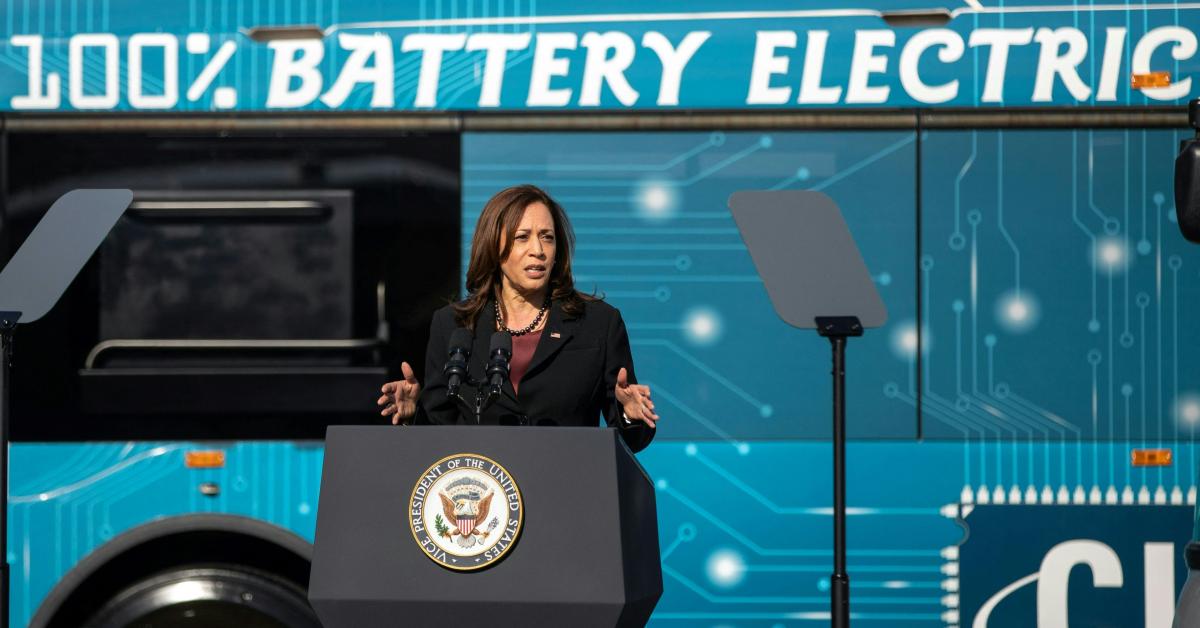We've all discussed this in the various electric car threads, the lack of power in the grid to actually charge all these vehicles.
Now the government's own report, its inspector general, pretty much sounds the alarm, or maybe just chirps in with a huge reality check. There is not enough power generation capacity to convert and charge the nation's school bus system from gas/diesel to electric.

 justthenews.com
justthenews.com
Full Story at JUST THE NEWS, follow the link above for more ^
Now the government's own report, its inspector general, pretty much sounds the alarm, or maybe just chirps in with a huge reality check. There is not enough power generation capacity to convert and charge the nation's school bus system from gas/diesel to electric.

Biden’s electric school bus program faces a big hurdle: inadequate utility power
Inspector General's report is the latest to expose the cart-before-horse dynamic in Democrats’ green energy push.
Full Story at JUST THE NEWS, follow the link above for more ^
Biden’s electric school bus program faces a big hurdle:
inadequate utility power
Inspector General's report is the latest to expose the cart-before-horse dynamic in Democrats’ green energy push.
President Joe Biden’s signature $5 billion program to convert the nation’s school buses to an electric fleet has collided with a formidable challenge: a lack of charging infrastructure and power generation from local utilities.
The Environmental Protection Agency’s internal watchdog issued a report just before the New Year’s holiday that offered the latest evidence of a cart-before-horse dynamic in the Democratic push for green energy.
“The Agency may be unable to effectively manage and achieve the program mission unless local utility companies can meet increasing power supply demands for electric school buses,” the inspector general reported candidly, blaming in prt agency officials for not putting more early emphasis on school districts coordinating with their power companies.
“The EPA provided utility resources during the rebate application process but did not require applicants to contact their utility provider to coordinate potential changes needed to connect charging stations to utilities,” the report noted. “While early coordination with utilities is not a requirement, it could prevent the Agency from achieving its objective to remove older diesel buses and replace them with clean buses.” . . .
The electric school bus initiative was boosted by Biden’s Infrastructure Investment and Jobs Act, setting aside $5 billion to grant money to local school district to convert their fleets from gas and diesel. Vice President Kamala Harris took the lead in rolling out the grants last year at a much ballyhooed event.
“Who doesn’t love a yellow school bus?,” Harris asked in October 2022 as she noted that 95% of the buses that carry school children each day burn diesel.
“What we’re announcing today is a step forward in our nation’s commitment to be a leader on these issues to reduce greenhouse gas emissions, to invest in our economy, to invest in job creation, to invest in building the skills of America’s workforce — all with, as that young leader this morning said to me, a goal of not only saving our children, but, for them, saving our planet,” Harris added.
Nearly 2,000 school districts applied for the first round of rebates from all 50 states and Washington, D.C., leading to an initial round of $1 billion. But since then, school districts around the nation have encountered serious difficulties, from a lack of chargers to maintenance problems, repair parts supplies, and downtime on the new technology, according to a recent analysis in Real Clear Energy.
The EPA Inspector General (IG) warned in its new report the problems could persist if school districts don’t synch better with utility officials and pace purchases to the ability of the power grid to expand.
“We identified concerns with delays related to the infrastructure needed to support the bus charger manufacturers and the increased demand on utilities,” the report warned. “Entities we interviewed identified concerns about possible delays with utility providers bringing the necessary power lines and transformers to the school districts for charging the buses.
One utility company told the IG that while it had experience with electric vehicles and buses, “it did not have experience at the projected scale,” the report noted.
Another utility estimated it could take nine months to two years to complete construction, meaning new electric buses could sit idle on lots.
“The most common infrastructure upgrades needed to support the bus chargers are transformers, electrical lines, and switch changers. This utility noted that early communication between the companies and school districts, such as prior to applying for funding, is important for the execution of this program,” the report added.
While issue stern warnings, the IG report also had some bright news for proponents of the project. So far, the supply chain needed for batteries and electric components for buses has kept up, the report noted. . . .

